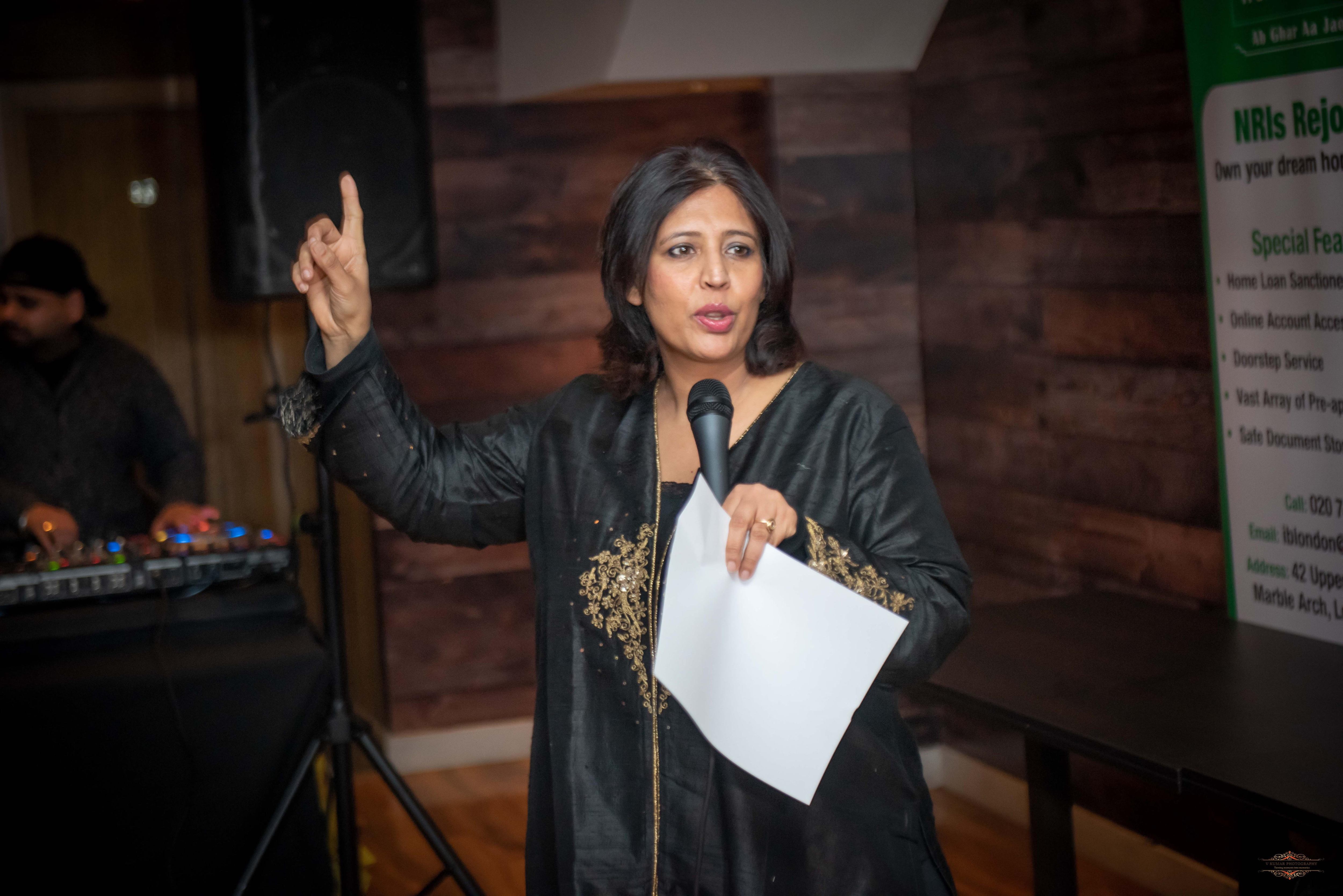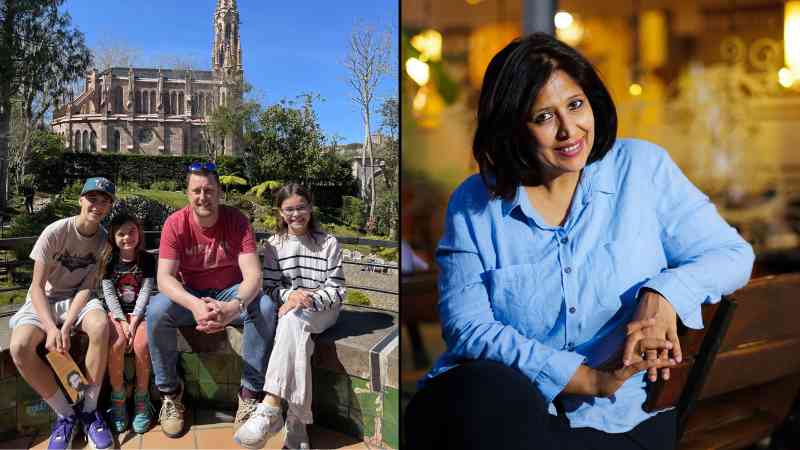Our children are at private school — here’s how we’ll keep paying the fees
Ian Cook took his 10-year-old son Gabriel out of their local state primary school a year ago because he felt that he would benefit from smaller class sizes.
Cook, a chartered financial planner who lives near Farnham in Surrey, said it was the right decision and that Gabriel is a lot happier. But he is now worried about how he will afford next year’s fees so has decided to cut back his pension contributions — a move that could add years to his retirement age.
Thousands of other parents are taking similar measures so that they can cope with the prospect of higher school fees under a Labour government that has pledged to make private schools pay VAT. Some are diverting money from their businesses, finding lump sums to pay fees in advance and even considering sending their children abroad.
For some of the 6.5 per cent of children who go to private school, it may no longer be an option. We speak to four families about what they are doing to prepare for higher costs.

‘I’m pushing back my retirement’
Ian Cook, 50, has one child at private school
Cook said that it was now “very unlikely” that he will be able to retire in his early sixties, as he had planned. Gabriel is about to move up to the secondary level of his private school in Hindhead, Surrey, which will cost about £22,000 a year.
Cook, a former army sergeant, said that if the school passed on the full extra VAT cost to parents “it could add more than £4,000 a year, which is something I’ve already started planning for. Many of my clients are having to do the same thing.
• The grandparents guide to giving: property, trusts and Isas
“I haven’t been able to save into my pension as much as I would like, which will probably mean I have to push back my retirement.”
Cook said that his son’s move from the state primary near their home had, however, been a big success: “The impact of the move has been huge. My son has changed dramatically. He seems a lot happier and he’s exposed to more sports and other activities which he may not have had access to otherwise. I will do whatever I can to keep him in private school.”

‘I have already paid in advance’
Andrew Smith, 45, has three children at private school
Andrew Smith pays about £54,000 a year in private school fees for his children, William 14, Emilia, 11, and Isabella, 6.
Smith who owns and runs a dental practice in Bromley, south London, has paid a year in advance for Isabella and William in the hope that this would save him from any VAT change. Emilia is about to move to secondary school and her dad hasn’t yet decided how many years in advance to pay for her, because he isn’t sure when her fees will go up, or by how much.
He said: “In principle I have no problem with paying VAT on school fees. We have to find the money to pay for better state education and this sounds like a perfectly reasonable way of doing it.
“What is not helpful is the lack of clarity about when and how the new charges will apply. This is not great for families trying to plan their finances. It is especially complicated for parents like me, who have a child who is in the process of moving schools. Labour should spell these details out now so that parents can plan ahead.”
Smith, a former banker, says he will be using money that he would have invested in his pension or his business to cover the additional costs.

‘I could send my son to school in India’
Loveena Tandon, 44, has two children at private school
Loveena Tandon’s has been paying for private education since her children left primary school. It costs her £21,000 a year for her son, 14, and £24,000 for her daughter, 16.
Tandon, who lives near Heathrow in west London, does not want her daughter to have to move schools. She said: “The school has been a huge support for my daughter so I am focusing my effort to keep her there for the rest of her A-levels. It would be too disruptive to move her now.”
A freelance filmmaker, Tandon, 44, may seek a full-time role to ensure that she has a more stable income and is also considering different options for her son. “I would like to keep him in the private school, but it may not be affordable.”
She has applied to the local grammar school which has an entrance exam and has even thought about sending him to a private school in Mumbai, where her sister and mother live. “The education there is great, but this is an extreme option as I would have to be apart from my son for two years.”
• How to afford private school fees
‘We’re pulling our son out of school’
Charlotte*, 44, has one child at private school
Charlotte has a 10-year-old son who was diagnosed with attention deficit hyperactivity disorder and autism spectrum disorder last year. His parents moved him to a private school with smaller classes where he is much happier. The fees are about £7,000 a year.
She said: “My son gets overwhelmed by sensory stimuli. Now that he is in a class of ten instead of 30 and in a smaller, greener environment, he is much happier and relaxed.”
However, Charlotte, who is self-employed, does not know how she will be able to afford the fees if VAT is added. She had already reduced the money she is putting into her pension and other savings.
Labour has said that children with special needs will be exempt from fee increases if they have an education, health and care plan (EHCP), which gives the school additional funding to help the child and could go towards fees. However, last year there were about 1.2 million children with special educational needs without an EHCP, according to the Department for Education. Some children have had to wait up to two years to get one.
“This is too long for us to wait for financial support,” Charlotte said. She and her husband, who works in IT, have decided to take their son back to the state sector. “This is not what we would have wanted, but we have been pushed into making these decisions.”
*Her name has been changed
How to get support
Most independent schools offer bursaries, which can cover up to 100 per cent of the fees as well as uniform and extra-curricular activities. Keir Starmer’s old school, Reigate Grammar in Surrey, which was not a private school when he started there, says it can cover all fees as well as assistance towards the cost of uniform, meals and travel.
Eligibility will be based on entrance exams and parent’s income. Families with a total gross annual income over £100,000 are unlikely to qualify for a bursary, according to the school’s website.
The Independent Schools Council, a lobby group, said that more than £1.4 billion of “fee assistance” was provided by schools this year, up 10.2 per cent from the year before. About £500 million of this was means-tested, rather than based on ability. The average means-tested bursary was worth £12,900 a year. About 9,330 pupils paid no fees at all, either via a full bursary or a combination of a bursary and a scholarship, the council said.
A scholarship is usually focused on academic, creative or sporting merit and does not tend to be means-tested. Some schools may also offer discounts for siblings and for parents who work in specific professions. Many schools offer discounted fees for children of those serving in the armed forces or children who live very close to the school.
Don’t rely on paying in advance
VAT may still apply, even if you have paid your child’s school fees upfront, according to Jas Dhillon from the accountancy firm Lubbock Fine.
He said: “A Labour government will probably try to charge VAT retroactively on parents who have paid fees in advance. These parents should set money aside in case this happens to avoid being caught out.”
Dhillon also warned that schools may have advertised “fees in advance” schemes too hastily and should be careful with the contracts that they offer parents. “Many schools promised parents that they could pay upfront and avoid VAT. They may have overpromised and opened themselves up to challenges from parents. That may end with them being forced to cover the VAT costs themselves to avoid confrontation.”
Labour’s VAT plans explained
Labour plans to apply 20 per cent VAT to private school fees. If schools pass on these costs to parents, it could add thousands of pounds. Average fees are £18,063 a year for day pupils and £42,459 for boarders, according to the Independent Schools Council. With a full VAT increase, the fees would be £21,675 and £50,951.
About 594,000 children in the UK are educated in the private sector, some 6.5 per cent of all pupils. About 95 per cent of private schools plan to increase fees, according to a poll of 350 in March by Censuswide (commissioned by the Daily Telegraph).
Labour’s plan to introduce VAT on school fees was announced in September, with the party saying that the change would come “straight away”. However, last month the new chancellor, Rachel Reeves, suggested that the policy would not be enforced until 2025. “These changes would be in our first budget, but they would come in after that, not retrospectively.”
The Labour Party believes it can raise some £1.6 billion a year by ending the 20 per cent VAT exemption on private school fees. It plans to use the money to recruit about 6,500 specialist state school teachers in England.






